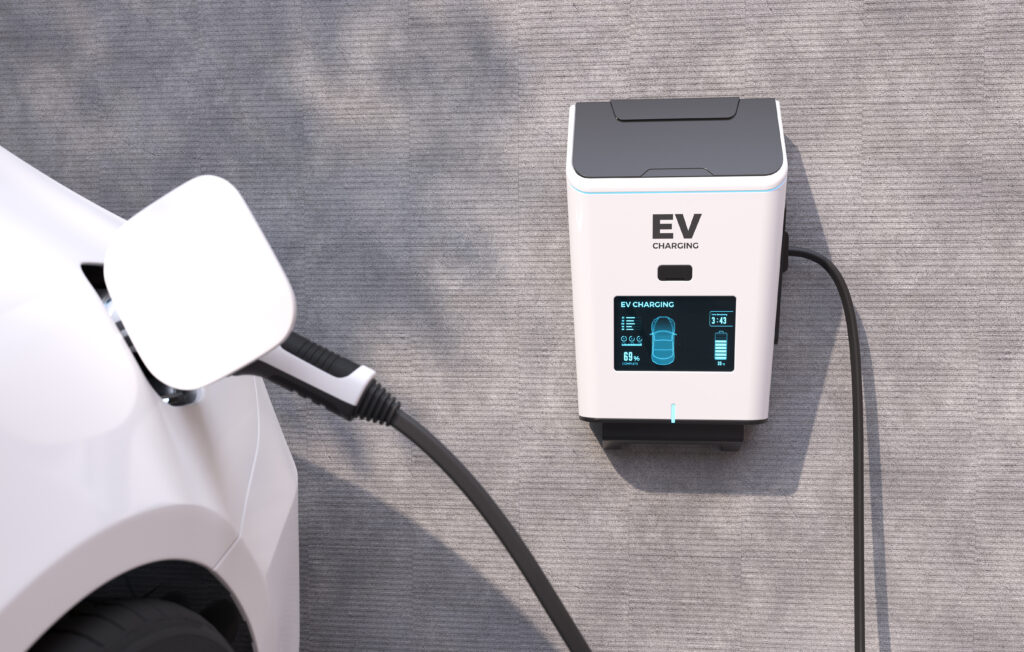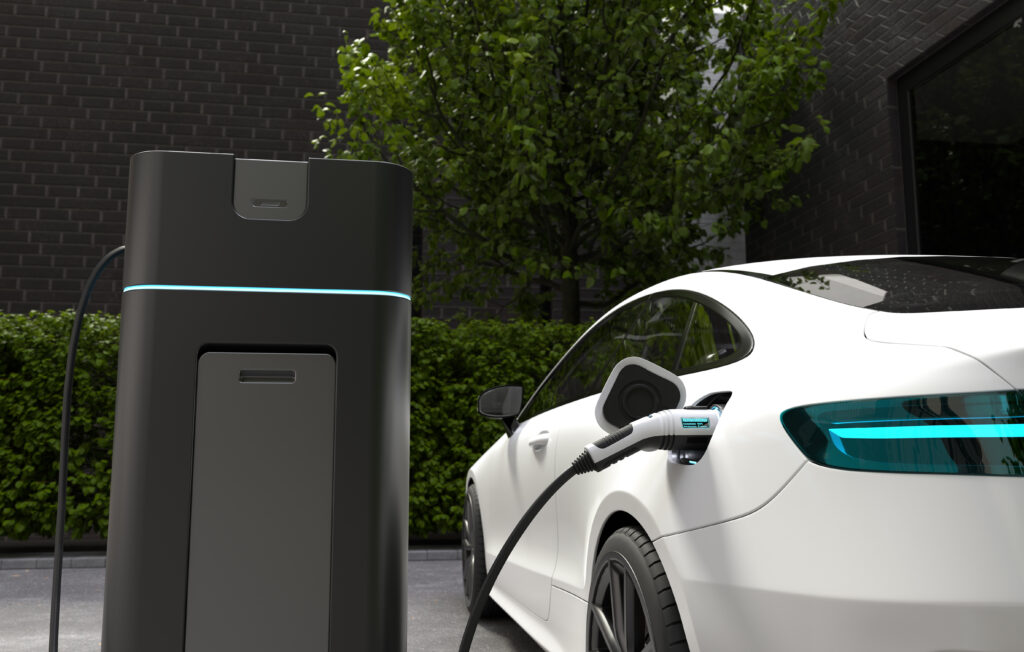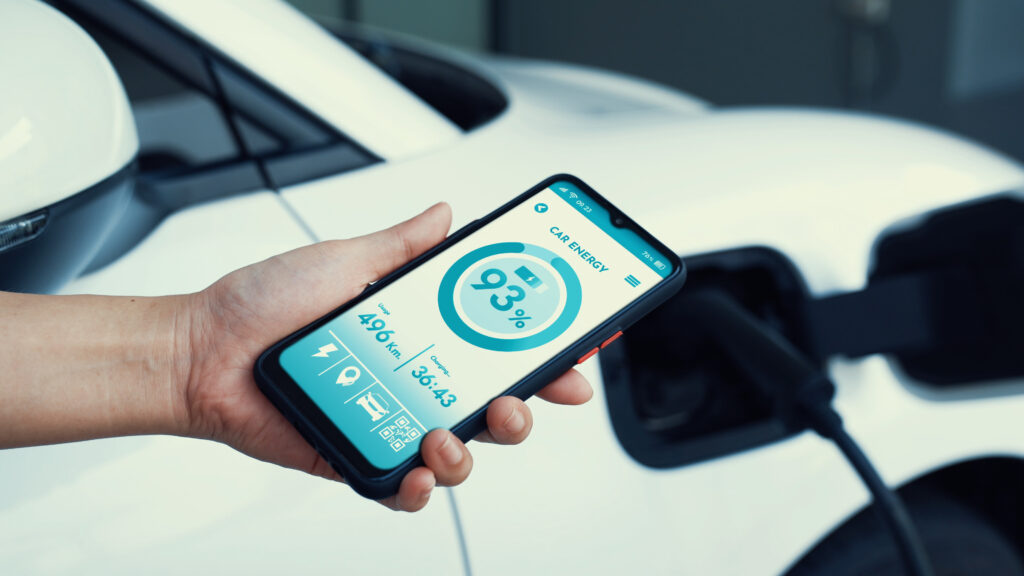Table of Contents
Table of Contents
“Will my electricity bill go through the roof?” It’s the question every prospective EV owner asks, and frankly, it’s completely understandable. With energy prices fluctuating more than a British summer, working out how much it costs to charge an electric car can feel like solving a particularly tricky maths puzzle.
Here’s the straightforward answer: charging an electric car at home typically costs between 7-15p per mile, compared to roughly 18-22p per mile for petrol. For the average UK driver covering 8,000 miles annually, that translates to annual charging costs of £560-£1,200 versus £1,440-£1,760 for petrol—a potential saving of £560-£880 per year.
But those figures don’t tell the whole story. Your actual electric car charging costs depend on several key factors: when you charge (off-peak tariffs can slash costs by 60%), where you charge (home versus public charging), and which energy supplier you choose.
The good news? With the right tariff and charging habits, many UK drivers find their EV running costs are less than half their previous petrol expenses. Let’s break down exactly what you can expect to pay and how to minimise those costs.
Understanding Electric Car Charging Costs: The Complete Breakdown
When calculating how much it costs to charge an electric car in the UK, you need to consider three main scenarios: home charging, public charging, and workplace charging. Each has dramatically different cost implications for your monthly budget.
Home Charging: Your Most Cost-Effective Option
Home charging consistently offers the cheapest rates, typically ranging from 24-34p per kWh depending on your energy supplier and tariff. With the average electric car consuming 3-4 kWh per mile, this works out to approximately 7-14p per mile for home charging.
Let’s put this into perspective with real examples. A Tesla Model 3 charging cost at home would be around £8-£12 for a full charge (75kWh battery), giving you roughly 300 miles of range. Compare that to filling a similar-sized petrol car, which would cost £65-£75 for the same distance.
The key to maximising home charging savings lies in choosing the right electricity tariff. Economy 7 tariffs offer cheaper overnight rates, typically 15-20p per kWh between 11 PM and 7 AM. Even better, specialist EV tariffs like Octopus Go provide rates as low as 7.5p per kWh during off-peak hours, reducing your electric car charging cost per mile to just 2-3p.
Public Charging: Convenience Comes at a Premium
Public charging networks offer convenience but at significantly higher costs. Rapid charging costs typically range from 45-80p per kWh, depending on the network and charging speed. This translates to 14-25p per mile – still competitive with petrol, but considerably more expensive than home charging.
Slow public charging (7-22kW) usually costs 25-45p per kWh, while ultra-rapid charging (150kW+) can reach 65-80p per kWh. Networks like Ionity, Gridserve, and BP Pulse each have different pricing structures, with some offering membership schemes that can reduce costs by 10-20%.
The Tesla Supercharger network typically charges around 50-67p per kWh for Tesla owners, with slightly higher rates for non-Tesla vehicles. While expensive compared to home charging, it’s still roughly equivalent to petrol costs per mile.
Regional Variations Across the UK
Electric car charging costs vary significantly across UK regions, primarily due to different energy suppliers and local electricity infrastructure. London and South East drivers often face premium rates, with some public charging networks charging 10-15% more than national averages.
Scotland benefits from abundant renewable energy, with some suppliers offering competitive rates that can reduce home charging costs by 5-10%. Northern England and Wales typically offer middle-ground pricing, while rural areas might face higher public charging costs due to limited network competition.

Cost Comparison: Electric vs Petrol Running Costs
The most compelling argument for EV ownership lies in the dramatic difference in running costs. Let’s examine real-world scenarios based on current UK prices.
Annual Cost Calculations
For a driver covering 8,000 miles annually:
Petrol Car (35mpg average):
- Fuel needed: 1,310 litres
- Cost at £1.45/litre: £1,900
- Annual fuel cost: £1,900
Electric Car (Home Charging):
- Energy needed: 2,400kWh
- Cost at 30p/kWh: £720
- Annual charging cost: £720
- Annual saving: £1,180
Electric Car (Mixed Charging – 70% home, 30% public):
- Home charging: 1,680kWh at 30p = £504
- Public charging: 720kWh at 55p = £396
- Total annual cost: £900
- Annual saving: £1,000
These calculations demonstrate why home charging is crucial for maximising EV savings. Even with mixed charging scenarios, electric cars offer substantial cost advantages over petrol vehicles.
Cost Per Mile Analysis
Breaking down costs per mile provides clearer daily budgeting insights:
Home Charging Costs:
- Standard tariff (30p/kWh): 9-12p per mile
- Off-peak tariff (20p/kWh): 6-8p per mile
- EV-specific tariff (12p/kWh): 4-5p per mile
Public Charging Costs:
- Slow charging (35p/kWh): 11-14p per mile
- Rapid charging (65p/kWh): 20-26p per mile
- Ultra-rapid charging (75p/kWh): 23-30p per mile
Petrol Comparison:
- Current petrol prices: 18-25p per mile
- Premium petrol: 20-28p per mile
These figures highlight how EV charging costs remain competitive even with expensive public charging, while home charging offers dramatic savings.
Optimising Your Electric Car Charging Costs
Smart charging strategies can reduce your electric car running costs by 40-60%. Here’s how to maximise your savings while maintaining convenience.
Choosing the Right Energy Tariff
Standard Variable Tariffs offer simplicity but rarely provide the best value for EV owners. Fixed-rate tariffs provide price certainty, while time-of-use tariffs offer the greatest savings potential.
Economy 7 tariffs remain popular, offering seven hours of cheaper electricity overnight. Typical rates are 15-22p per kWh during off-peak periods (usually 11 PM to 7 AM) and 25-35p per kWh during peak hours.
Specialist EV tariffs provide even better value. Octopus Go offers 7.5p per kWh for four hours nightly, while OVO Charge Anytime provides competitive rates with flexible charging windows. British Gas Electric Drivers tariff offers 12p per kWh overnight rates.
Smart Charging Strategies
Timer-based charging ensures you utilise the cheapest electricity rates. Most EVs and home chargers include built-in timers, allowing you to schedule charging during off-peak periods automatically.
Load balancing prevents overloading your home’s electrical system while optimising costs. Smart chargers can communicate with your electricity meter, adjusting charging rates based on household electricity usage and tariff rates.
Solar integration offers the ultimate in cost reduction. If you have solar panels, smart chargers can prioritise using free solar electricity during daylight hours, reducing grid electricity consumption.
Workplace and Destination Charging
Many UK employers offer free workplace charging as an employee benefit. This can eliminate daily charging costs entirely, making EVs incredibly cost-effective for commuters.
Destination charging at hotels, shopping centres, and restaurants is often free or low-cost. Planning trips around available charging points can significantly reduce long-distance travel costs.
Some employers offer salary sacrifice schemes for EVs, providing additional tax benefits that can reduce total cost of ownership by 20-40%.

Real-World Cost Examples by Vehicle Type
Different electric car models have varying efficiency levels, significantly impacting charging costs. Here’s how popular models compare:
Efficient Electric Cars
Hyundai Ioniq Electric: 3.8 miles per kWh
- Home charging cost: 8p per mile
- Public charging cost: 17p per mile
- Annual cost (8,000 miles, home charging): £640
BMW i3: 4.2 miles per kWh
- Home charging cost: 7p per mile
- Public charging cost: 15p per mile
- Annual cost (8,000 miles, home charging): £560
Mid-Range Electric Cars
Tesla Model 3: 3.5 miles per kWh
- Home charging cost: 9p per mile
- Public charging cost: 19p per mile
- Annual cost (8,000 miles, home charging): £720
Nissan Leaf: 3.2 miles per kWh
- Home charging cost: 9p per mile
- Public charging cost: 20p per mile
- Annual cost (8,000 miles, home charging): £750
Luxury Electric Cars
Audi e-tron: 2.8 miles per kWh
- Home charging cost: 11p per mile
- Public charging cost: 23p per mile
- Annual cost (8,000 miles, home charging): £880
Mercedes EQS: 3.0 miles per kWh
- Home charging cost: 10p per mile
- Public charging cost: 22p per mile
- Annual cost (8,000 miles, home charging): £800
These examples demonstrate how vehicle efficiency dramatically impacts electric car charging costs, with the most efficient models offering 40-50% lower running costs than less efficient alternatives.
Seasonal Variations and Weather Impact
EV charging costs fluctuate seasonally due to battery efficiency changes and heating requirements. Understanding these variations helps with accurate budgeting.
Winter Cost Increases
Cold weather reduces battery efficiency by 15-25%, increasing energy consumption and charging costs. Heating systems in EVs also consume additional electricity, further increasing costs during winter months.
Winter charging cost increases:
- Battery efficiency reduction: +20% energy consumption
- Heating requirements: +15% energy consumption
- Combined winter increase: +35% charging costs
For a typical EV owner, this means winter charging costs might increase from £60 to £81 per month, though this remains significantly cheaper than equivalent petrol costs.
Summer Efficiency Gains
Warmer weather improves battery efficiency, while reduced heating needs minimise energy consumption. Air conditioning usage can offset some gains, but overall summer charging costs typically decrease by 10-15%.
Managing Seasonal Variations
Pre-conditioning your EV while plugged in reduces energy consumption by warming or cooling the cabin using mains electricity rather than battery power. This strategy can reduce energy consumption by 10-20% during extreme weather.
Route planning becomes more important during winter, with longer charging stops needed for optimal battery performance. This might increase public charging costs but ensures reliable transportation.

Public Charging Network Cost Comparison
Understanding different public charging network costs helps you make informed decisions about where to charge when away from home.
Major UK Networks
BP Pulse: 57-79p per kWh depending on charging speed and membership status. BP Pulse Plus membership reduces costs by 10-15%.
Shell Recharge: 49-69p per kWh with membership discounts available. Premium locations might charge higher rates.
Ionity: 69p per kWh for pay-as-you-go users, with subscription options reducing costs to 45p per kWh.
Gridserve Electric Highway: 66p per kWh for ultra-rapid charging, with some locations offering free charging during promotional periods.
Tesco: Free 7kW charging at many stores (2-hour limit), with some locations charging 28p per kWh.
Network Membership Benefits
Most networks offer membership schemes reducing charging costs by 10-25%. Annual fees typically range from £20-£100, making them worthwhile for regular users.
Multi-network apps like Zap-Pay and Bonnet provide access to multiple charging networks through single accounts, often with modest discounts.
RFID cards from networks often provide better rates than contactless payments, though the difference is usually minimal (2-5p per kWh).
Cost-Saving Tips for EV Owners
Implementing smart strategies can reduce your electric car charging costs by 30-50% without compromising convenience.
Energy Management Strategies
Load shifting involves timing high-energy activities (charging, washing machines, dishwashers) during off-peak periods. This maximises use of cheaper electricity rates.
Battery management extends battery life and efficiency. Charging to 80% for daily use and only charging to 100% before long trips optimises battery health and reduces energy consumption.
Journey planning using apps like Zap-Map, PlugShare, or A Better Routeplanner helps identify the cheapest charging options along your route.
Long-Term Cost Reduction
Solar panel installation can reduce charging costs to virtually zero during sunny periods. Combined with battery storage, solar can provide year-round charging cost reductions of 60-80%.
Time-of-use optimisation means scheduling not just EV charging but all household electrical usage during cheaper periods, reducing overall electricity bills by 20-30%.
Energy monitoring helps identify the most cost-effective charging patterns. Smart meters and energy monitors provide detailed usage data enabling fine-tuning of charging strategies.
Future Cost Trends and Predictions
Electric car charging costs will likely continue evolving as the UK’s energy landscape changes and EV adoption increases.
Expected Cost Reductions
Renewable energy expansion should stabilise or reduce electricity prices long-term, benefiting EV owners. Government commitments to renewable energy suggest this trend will continue.
Battery technology improvements will increase EV efficiency by 5-10% annually, reducing energy consumption and charging costs per mile.
Charging infrastructure expansion will increase competition among public charging networks, potentially reducing rapid charging costs by 10-20% over the next 3-5 years.
Potential Cost Increases
Grid infrastructure upgrades might temporarily increase electricity prices as costs are passed to consumers. However, these increases should be offset by efficiency gains and renewable energy adoption.
Peak demand charges might emerge as EV adoption increases, encouraging off-peak charging and potentially penalising peak-time charging.
Frequently Asked Questions
How much does it cost to charge a Tesla Model 3 in the UK? A full charge for a Tesla Model 3 (75kWh battery) costs £18-£26 at home using standard tariffs, or £8-£12 using off-peak rates. This provides approximately 300 miles of range.
Is it cheaper to charge an electric car than buy petrol? Yes, significantly. Home charging typically costs 7-15p per mile compared to 18-25p per mile for petrol. Even expensive public charging (20-30p per mile) remains competitive with petrol prices.
What’s the cheapest time to charge an electric car in the UK? The cheapest charging times are typically between 11 PM and 7 AM on Economy 7 tariffs, or during specific off-peak windows on EV-specific tariffs like Octopus Go (12:30-4:30 AM).
How much does public charging cost compared to home charging? Public charging typically costs 2-4 times more than home charging. Rapid charging can cost 65-80p per kWh compared to 24-34p per kWh for home charging.
Does cold weather increase electric car charging costs? Yes, winter weather can increase charging costs by 20-35% due to reduced battery efficiency and heating requirements. However, costs remain significantly lower than petrol equivalents.
Which energy supplier offers the cheapest EV charging rates? Specialist EV tariffs like Octopus Go (7.5p per kWh off-peak) currently offer the cheapest rates, though various suppliers offer competitive EV-specific tariffs worth comparing.
How much can I save annually by switching from petrol to electric? Average UK drivers save £800-£1,200 annually on fuel costs alone, with additional savings from reduced maintenance and tax benefits. Total savings often exceed £1,500 annually.

Making the Switch: Your Cost-Effective EV Future
The evidence is overwhelming: electric car charging costs in the UK are significantly lower than petrol expenses, even with current energy prices. Smart charging strategies, appropriate tariff selection, and efficient vehicle choices can deliver annual savings exceeding £1,000 for typical drivers.
The key to maximising these savings lies in understanding your options and making informed decisions about when, where, and how you charge. Home charging remains the cornerstone of cost-effective EV ownership, while strategic use of public charging ensures you’re never stranded while maintaining reasonable costs.
As the UK’s charging infrastructure expands and renewable energy adoption increases, electric car running costs will likely decrease further, making the financial case for EV ownership even more compelling.
Ready to calculate your potential savings? Start by researching EV-specific energy tariffs, understanding your current driving patterns, and exploring the growing range of efficient electric vehicles available in the UK market. The transition to electric driving isn’t just environmentally responsible—it’s financially smart, potentially saving you thousands of pounds annually while contributing to a cleaner, more sustainable transport future.


